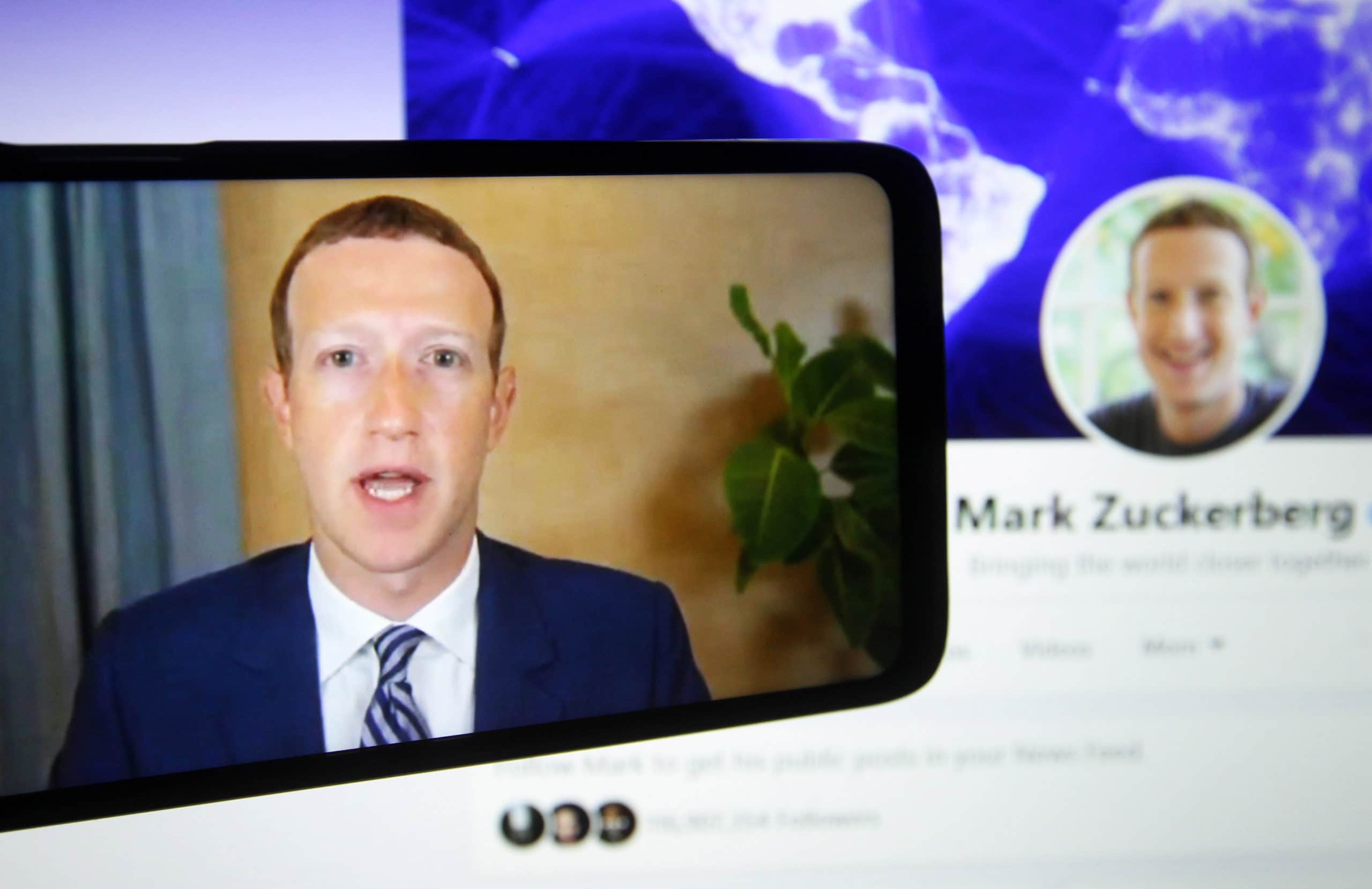TOPLINE: A federal district court ruled in favour of Facebook in two lawsuits brought by the Federal Trade Commission (FTC) and state attorneys general Monday, thwarting government efforts to break up the big tech behemoth and sending the company’s market value to record heights—though the court said the FTC can file their complaint again and make another attempt.
KEY FACTS
The FTC sued Facebook in December 2020, alleging the company had violated antitrust law through practices like buying up competitors like Instagram and WhatsApp.
U.S. District Judge James E. Boasberg ruled the government agency’s claims about Facebook being a monopoly were “legally insufficient and must therefore be dismissed,” saying the government’s case was “light on specific factual allegations” even as the judge acknowledged the court “does not agree with all of Facebook’s contentions here.”
New York Attorney General Letitia James led 48 states in separately suing Facebook for alleged antitrust violations in December, which Boasberg also dismissed Monday, saying the states waited too long to bring their case.
The states’ case “is premised on public, high-profile conduct nearly all of which occurred over six years ago,” Boasberg wrote—“when Ebola was the virus dominating headlines”—and granting relief to the states now would result in harm to Facebook and its shareholders given that Instagram and WhatsApp have been fully integrated into the company.
Loading...
The FTC lawsuit was dismissed “without prejudice,” which means it can be filed again with changes to address the court’s concerns, but the state complaint was dismissed in its entirety.
The favorable ruling led to Facebook’s stock rising by more than 4% Monday and the company hitting a $1 trillion market cap for the first time, and the company said in a statement they were “pleased” the court’s decisions “recognize the defects in the government complaints filed against Facebook.”
CRUCIAL QUOTE
“The FTC alleges only that Facebook has ‘maintained a dominant share of the U.S. personal social networking market (in excess of 60%)’ since 2011…and that ‘no other social network of comparable scale exists in the United States.’ That is it,” Boasberg wrote to explain why he ruled in Facebook’s favor, saying the FTC did “not even provide an estimated actual figure or range for Facebook’s market share at any point over the past ten years” and their allegations “ultimately fall short of plausibly establishing that Facebook holds market power.”
WHAT TO WATCH FOR
The FTC is likely to submit an amended complaint to get the court to reconsider the issue, particularly considering the agency’s new director, Lina Khan, has a history of being critical of big tech. The new FTC chief, who the Senate just confirmed in mid-June, expressed concerns about the dominance of big tech companies like Facebook during her confirmation hearing, saying she believed there was a “whole range of potential risks” associated with companies’ growing power.
KEY BACKGROUND
The Facebook lawsuits are part of a growing government effort against Facebook and its big tech brethren. Government lawsuits have also been brought against Google, the FTC is reportedly preparing to investigate Amazon over its acquisition of MGM and the House Judiciary Antitrust Subcommittee concluded in October that Congress should consider updating its antitrust laws and breaking up big tech companies, among other efforts. Facebook, for its part, has maintained it does not practice anticompetitive behavior—even as emails show CEO Mark Zuckerberg said he viewed Instagram as a threat that “can hurt us meaningfully” before Facebook bought the company—and has integrated the tech behind its platforms like Instagram and WhatsApp reportedly in order to make the company harder to break up.
TANGENT
Antitrust legislation that could result in big tech companies like Facebook potentially getting broken up is moving forward in Congress, with the House Judiciary Committee advancing legislation last week that would prohibit companies from owning businesses that present a conflict of interest, stop tech platforms from advantaging their own services over those of competitors and give regulators more of an advantage over the tech companies. Those bills likely face an uphill battle in a closely divided Senate, however, even as both Republicans and Democrats have advocated against tech companies’ growing power.
SURPRISING FACT
Among those who have called for Facebook to be broken up is the company’s own co-founder Chris Hughes, who wrote in a 2019 op-ed that the “government must hold Mark accountable.” “Mark’s power is unprecedented and un-American,” Hughes wrote about Zuckerberg. “It is time to break up Facebook.”
FURTHER READING
48 Attorneys General, FTC File Antitrust Charges Against Facebook (Forbes)
Regulators want to break up Facebook. That’s a technical nightmare, insiders say. (Washington Post)
By Alison Durkee, Forbes Staff
Loading...
